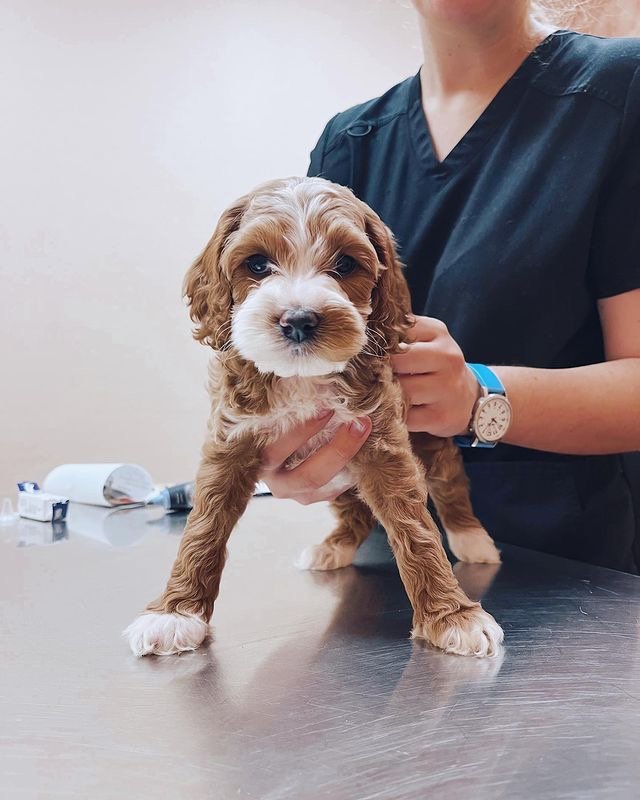
Do Labradoodles handle heat well, or are they prone to overheating
Do Labradoodles handle heat well, or are they prone to overheating? This is an important question for anyone considering this popular designer breed, especially those living in warmer climates. Labradoodles, a mix between the Labrador Retriever and the Poodle, inherit traits from both breeds that influence how they cope with heat. While they often have coats that help regulate temperature, Labradoodles can be sensitive to high temperatures and humidity, making them prone to overheating if not properly cared for.
Understanding how Labradoodles manage heat, recognizing signs of heat stress, and learning ways to keep them cool are vital for every Labradoodle owner. In this detailed guide, we’ll cover the breed’s heat tolerance, factors affecting their ability to handle warmth, tips to prevent overheating, and more. Plus, for those interested, we’ll share a comprehensive list of Goldendoodle breeders in warmer regions—breeds with similar traits and needs.
🌞 Key Takeaways
- Labradoodles have moderate heat tolerance but can be prone to overheating due to their dense coats and energetic nature.
- Factors like coat type, humidity, age, and health status affect how well they handle heat.
- Owners should provide plenty of shade, water, and avoid peak heat hours to prevent heatstroke.
- Recognizing early symptoms of heat exhaustion can save your pup’s life.
- A list of top Goldendoodle breeders in warmer climates is included for families seeking heat-adapted doodle puppies.
Labradoodles and Heat: What Affects Their Tolerance?
Labradoodles typically have curly, wavy, or fleece-like coats inherited from Poodles and Labradors. These coats can be insulating, which is great for cold weather but potentially challenging during hot spells. Labradoodles do not have a double coat like pure Labradors, but their hair can still trap heat.
Important factors include:
- Coat density and length: Longer, thicker coats retain more heat.
- Humidity: Labradoodles handle dry heat better than humid conditions, where cooling via panting is less effective.
- Age: Puppies and senior dogs are more vulnerable to heat stress.
- Activity level: High-energy Labradoodles generate more body heat.
- Body size: Overweight or muscular Labradoodles can overheat faster.
Are Labradoodles Prone to Overheating?
While Labradoodles don’t generally have the extreme short noses (brachycephalic features) that make breeds like Bulldogs prone to heatstroke, their dense coats and sometimes high energy can put them at risk.
Signs of overheating in Labradoodles include:
- Excessive panting or drooling
- Bright red gums or tongue
- Weakness or uncoordinated movement
- Vomiting or diarrhea
- Collapse or unconsciousness in severe cases
Heatstroke is a medical emergency and requires immediate veterinary attention.
How to Help Labradoodles Handle Heat Better
1. Grooming and Coat Care
Regular grooming helps remove mats and loose hair that trap heat. However, avoid shaving the coat too short, as it can expose skin to sunburn and reduce natural insulation. Aim for a neat, trimmed coat.
2. Provide Plenty of Water and Shade
Always ensure fresh water is available and provide shaded areas during outdoor activities.
3. Limit Exercise During Peak Heat
Walk your Labradoodle early in the morning or late evening when temperatures are cooler. Avoid strenuous exercise during midday.
4. Cooling Products
Cooling vests, mats, and fans can help lower your pup’s temperature. Spraying water on paws and belly also provides quick relief.
5. Avoid Hot Surfaces
Pavement and sand can become dangerously hot and burn paw pads. Test surfaces with your hand before walks.
Labradoodle Health Concerns Related to Heat
Labradoodles are sometimes prone to joint issues like luxating patella, which can be exacerbated by excessive exercise in hot weather. Overheating can also worsen respiratory and cardiovascular problems.
For more detailed info on joint health, visit this helpful AKC resource on luxating patella.
Listicle: Top Goldendoodle Breeders in Warm Climates
If you’re considering doodle breeds and live in a warm region, these breeders specialize in Goldendoodles adapted for warmer weather and raised with climate considerations:
- Aladdin Doodles – Florida
- Goldenbelle Doodles – Texas
- Forever Country Doodles – Alabama
- Southern Skies Doodles – Georgia
- South Carolina Goldendoodles – South Carolina
- Red Barn Doodles – Tennessee
- Deb’s Doodles – Virginia
- Prairie Hill Puppies – Kansas
- Hilltop Pups – Indiana
- Smeraglia’s Teddy Bear Goldendoodles – Alabama
- Riverview Doodles – New York (warmer southern parts)
- Gracie’s Goldendoodles – Colorado (lower elevations)
- Maple Hill Doodles – Ohio
- Teddy Bear Goldendoodles – North Carolina
- Jubilee Labradoodles – Oregon (mild coastal climate)
- Ashford Manor Goldendoodles – Indiana
- Crockett Doodles – Multi-state breeder
- Twin Lakes Doodles – Kentucky
- Golden Liberty Doodles – Nevada (desert climate)
- Midwest Goldendoodle – Illinois
Conclusion: Keeping Your Labradoodle Safe in the Heat
Do Labradoodles handle heat well, or are they prone to overheating? While Labradoodles can tolerate warm weather better than some breeds, their thick coats and active nature mean they can easily overheat without proper care. Knowing how to recognize heat stress and taking proactive steps—like managing exercise, grooming, and hydration—are key to keeping your Labradoodle healthy and happy during hot months.
If you’re thinking about getting a doodle breed in a warm climate, consider breeders experienced with raising puppies adapted to heat, like those listed above.
For more on preventing joint and health issues worsened by heat and exercise, check this detailed AKC guide on luxating patella.
🐕 Frequently Asked Question
What are the best ways to prevent my Labradoodle from overheating during summer?
To prevent overheating, provide plenty of water, avoid outdoor exercise during peak heat, groom regularly without shaving too short, use cooling products like vests or mats, and offer shade during playtime. Always watch for signs of heat distress and act promptly if your dog shows symptoms.




